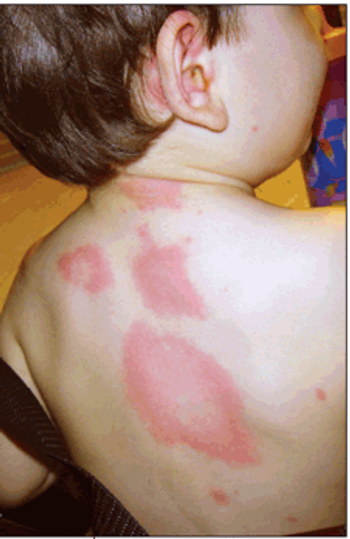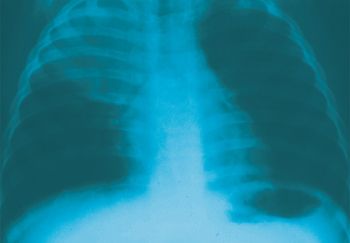
Allergic rhinitis and the “allergic triad,” allergy tests for children, allergic asthma, acute urticaria, a lipstick allergy, allergic contact dermatitis of the scalp-these images show a range of common allergic conditions.

Allergic rhinitis and the “allergic triad,” allergy tests for children, allergic asthma, acute urticaria, a lipstick allergy, allergic contact dermatitis of the scalp-these images show a range of common allergic conditions.

When is a headache more than just a headache? How best to treat a corneal ulcer? When can a patient with asthma safely undergo elective surgery? Here: tips to help you prepare for your recertification exam-and to help you in your daily practice.

They breathe in more air than do normal-weight persons, exposing them to more air pollutants and making them more vulnerable to asthma and other pulmonary diseases.

Obese children in this study were nearly 3 times as likely to have asthma as nonobese children.

Variants in a specific receptor gene appear to modulate therapeutic response in a small subset of patients who take long-acting ß-agonists.

A new study finds that acute atopic symptoms during pregnancy are associated with increased risk of early atopy and allergic rhinitis in children at age 5 years.

Inhaled corticosteroids may contribute to the high prevalence of obstructive sleep apnea among patients with asthma, a study showed.


A simple way to prevent asthma or treat wheezing may be to eat flaxseed or take some kind of probiotic.

Several related health concerns-including asthma, pericarditis, and pneumonia-are treatable within the primary care office.

For patients with asthma or COPD, PL554 has the potential to both reverse bronchodilation and reduce inflammation more quickly and with fewer adverse effects.

Respiratory symptoms are a major reason why outpatients seek medical care, and primary care physicians who treat children frequently see pneumonia. This week’s photo essay tests your knowledge of respiratory problems in kids.

Simple weight reduction may improve the management of asthma in obese patients, according to a new study

Pulmonary embolism was the diagnosis in these 3 women, each of whom presented with positional right flank pain.

Three women-all of whom presented with positional right flank pain-- all had the same final diagnosis. What do you think it was?

A scabies diagnosis can be made with a history of pruritus that is worse in the evening with a rash in a typical distribution and a history of itching in close contacts.

A unique cell phone application that targets minority adolescents who have asthma aims to reduce exacerbations of the condition and emergency department visits.

Cutaneous larva migrans (CLM), also known as “creeping eruption,” is the most commonly acquired tropical dermatosis

Asthma may be a risk factor for the development of obstructive sleep apnea, according to the results of a new longitudinal study.

Patients respond to 5 days of corticosteroid therapy just as well as to 14 days of therapy, according to a study.

The American College of Gastroenterology's last update to their gastroesophageal reflux disease guideline was published in 2005, so this February's new synthesis of more current treatment standards is welcome.

Images of allergic fungal rhinosinusitis, Wegener granulomatosis, interstitial lung disease, and other respiratory disorders show up in this photo essay.

The prevalence of chronic cough is reported to be 5% to 7% in preschoolers and 12% to 15% in older children. Diagnosis and management can present challenges.

Increased exposure to polycyclic aromatic hydrocarbons in air pollution is associated with certain immune system effects and asthma diagnosis, according to research reported the 2013 Annual Meeting of the American Academy of Allergy, Asthma & Immunology.

Primary care physicians can take the lead in helping address these additional comorbidities in their patients with asthma.